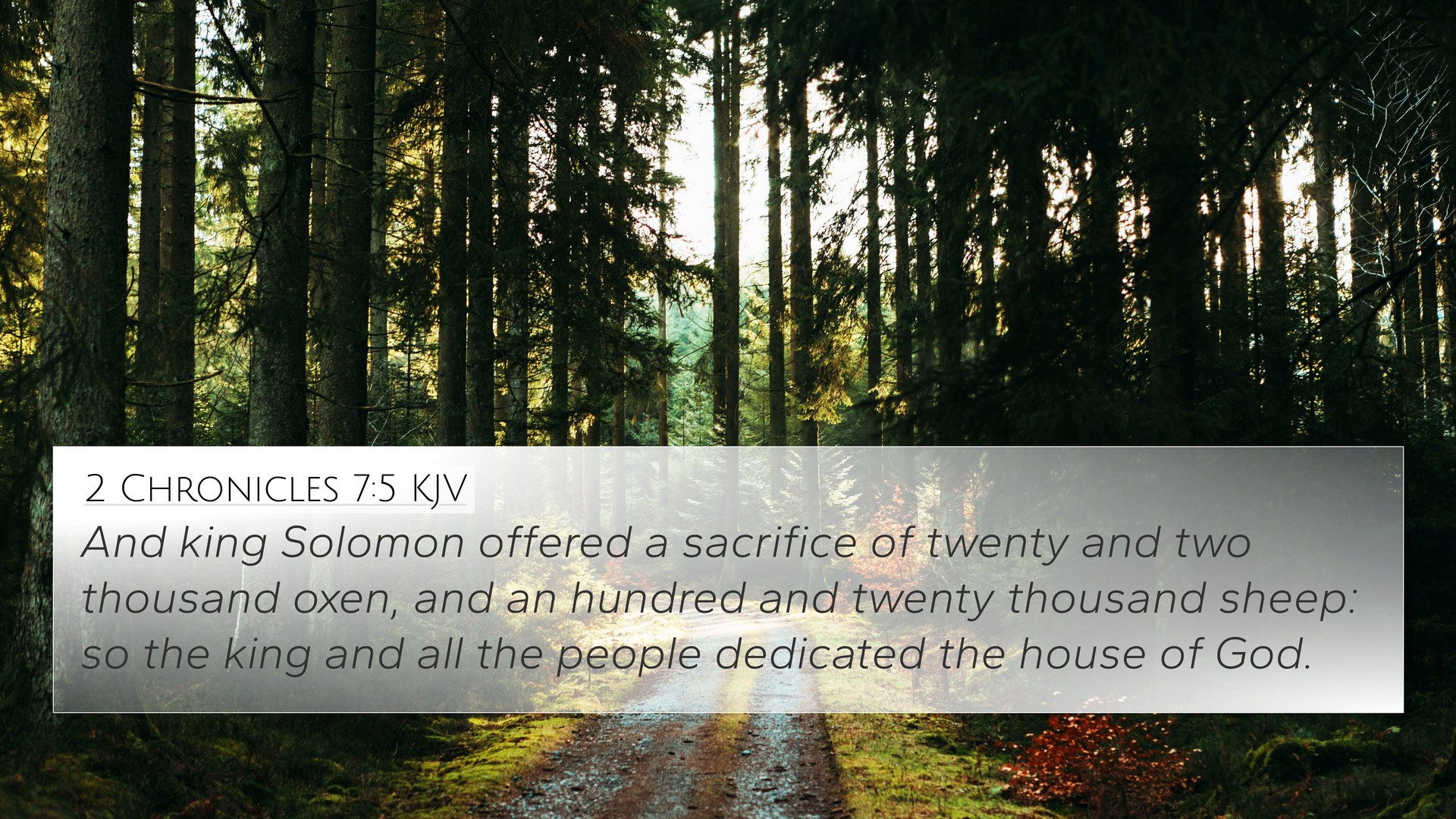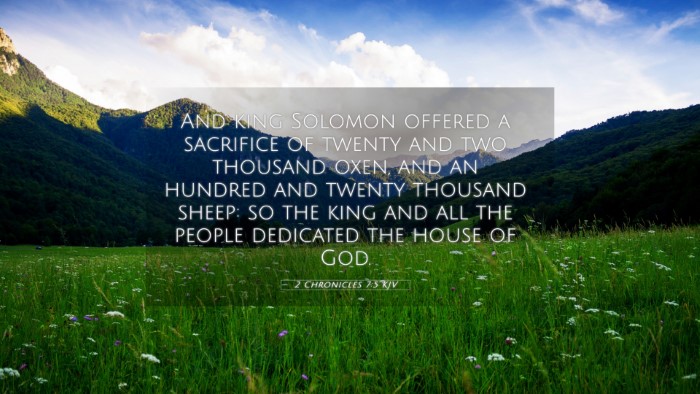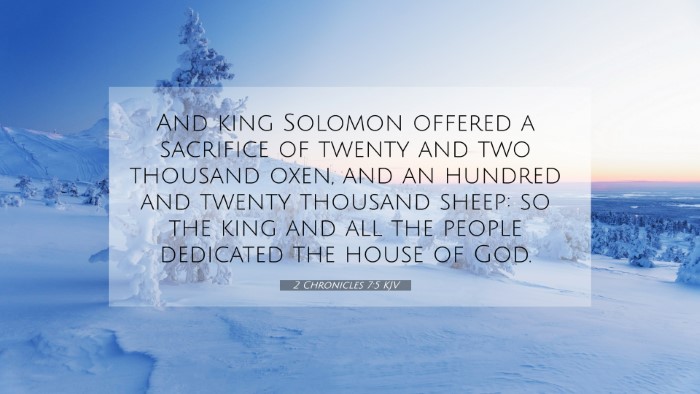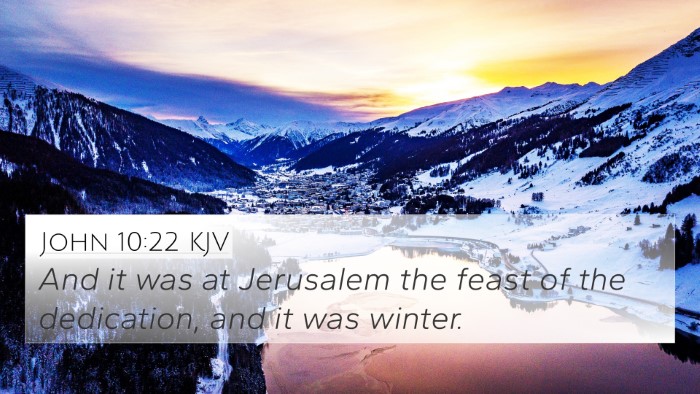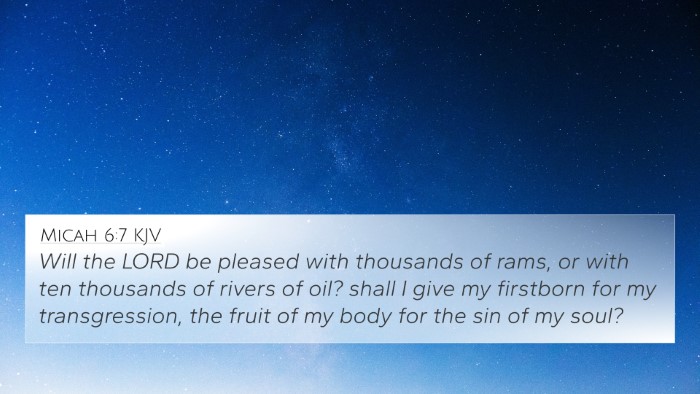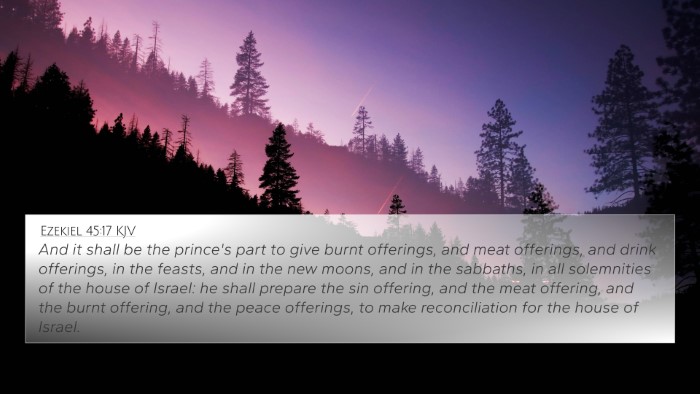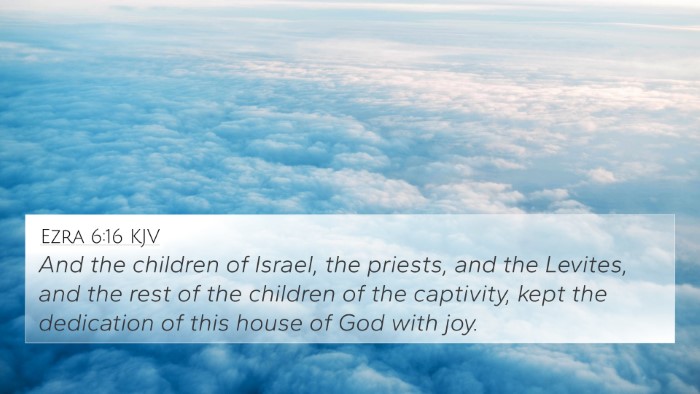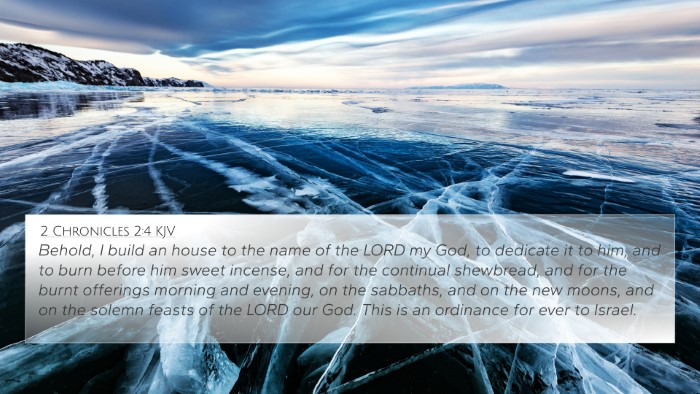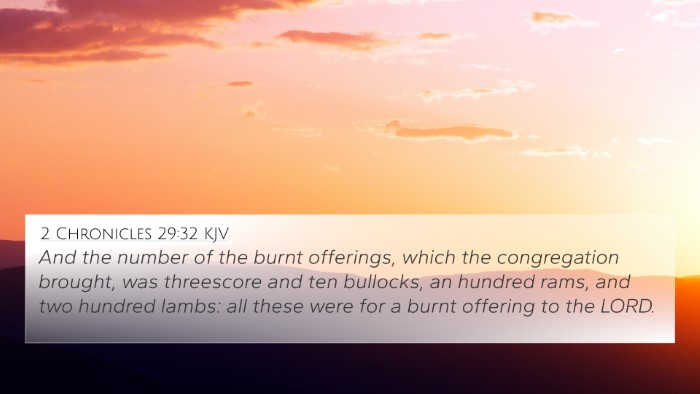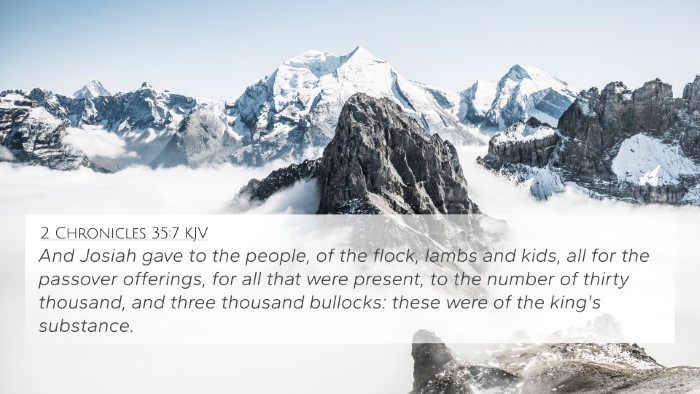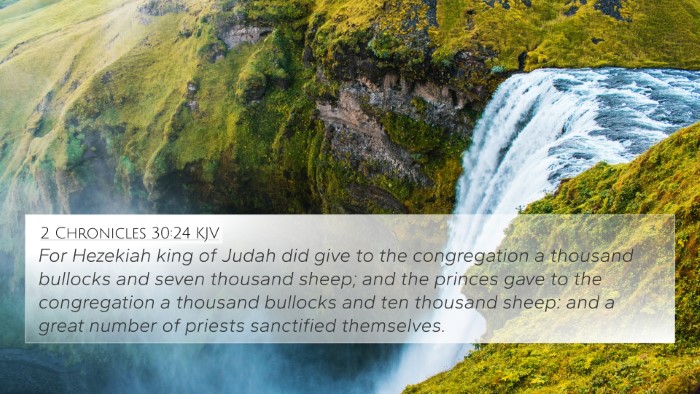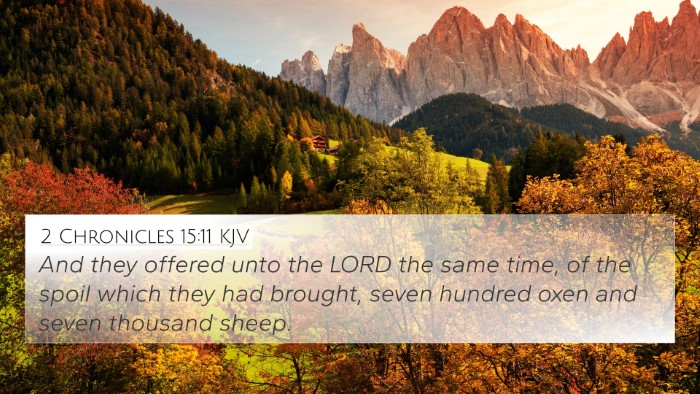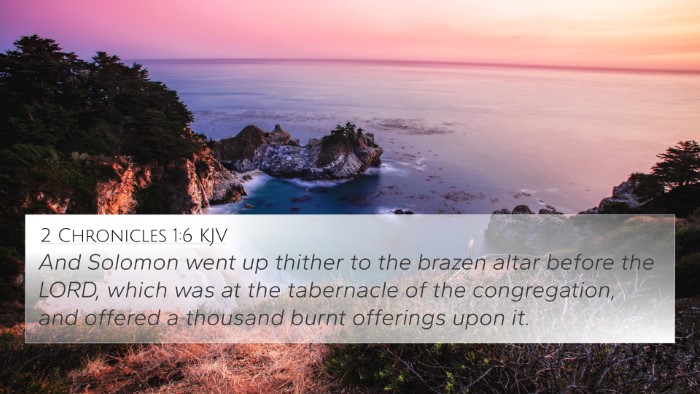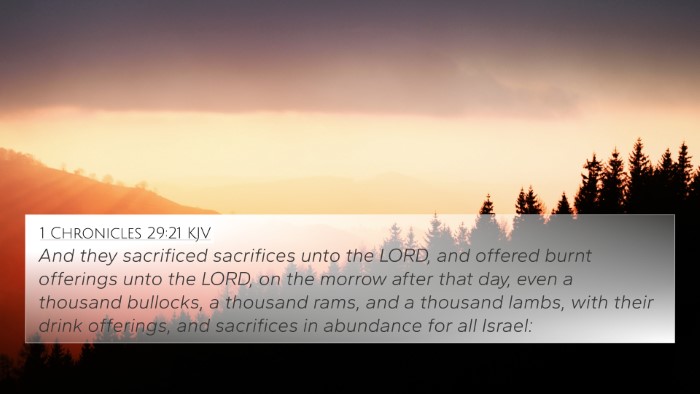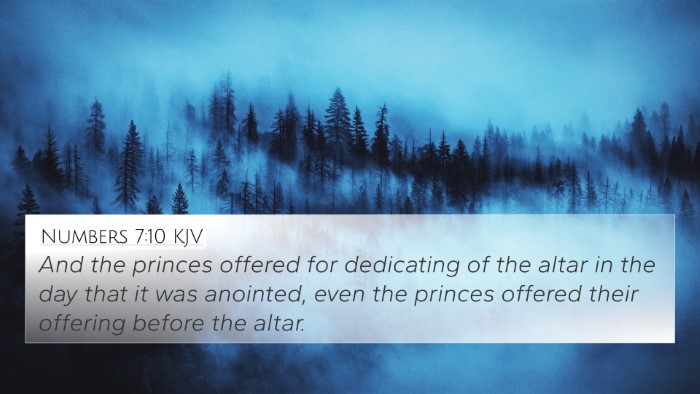Understanding 2 Chronicles 7:5
Verse: 2 Chronicles 7:5 - "And King Solomon offered a sacrifice of twenty and two thousand oxen, and an hundred and twenty thousand sheep: so the king and all the people dedicated the house of God."
Summary of Meaning
This verse captures the monumental moment of dedication for the temple built by King Solomon. The sheer number of animals sacrificed illustrates the significance of the occasion and the level of God's favor on Solomon and his reign. The dedication serves as a communal act of worship where the entire nation unites in recognizing the presence and holiness of God within the newly built temple.
Detailed Analysis
The sacrificial offerings made by Solomon can be understood through the insights provided by various public domain commentaries:
- Matthew Henry's Commentary: Henry emphasizes the grandeur and abundance of the offerings, symbolizing the devotion and reverence of Israel towards God. This act of sacrifice reflected not only Solomon’s personal piety but also the collective faith of the nation.
- Albert Barnes' Notes: Barnes notes that the numbers given in this verse indicate a massive devotion. Such sacrificial offerings were typical during significant events in Israel's history, aligning with the theme of dedication and holiness in worship. He also reflects on the symbolic nature of these sacrifices as representative of the people’s commitment to God.
- Adam Clarke's Commentary: Clarke highlights the implications of these sacrifices, viewing them as an expression of gratitude and acknowledgment of God’s blessing. The act of dedicating the temple with such significant offerings illustrates not just an act of worship but also a deep understanding of God’s covenant relationship with the people of Israel.
Bible Cross-References
To enrich your study of 2 Chronicles 7:5, consider the following Bible verse cross-references that link and highlight similar themes:
- 1 Kings 8:63: This parallel scripture provides a similar account of the sacrifices made during the temple dedication.
- Leviticus 1:5: Discusses the specifics of sacrifices, offering deeper insight into the significance of Solomon’s actions in the context of the Law.
- 2 Chronicles 2:4: Reflects Solomon’s intention to build a temple for the Lord, which sets up the importance of the dedication event.
- Psalm 147:1: Highlights how praise is beautiful and fitting, resonating with the atmosphere created during the temple dedication.
- Exodus 29:38-46: Detailed instructions on daily offerings which contextualize the significance of sacrificial acts.
- Hebrews 9:22: Discusses the necessity of blood for the forgiveness of sins, linking the Old Testament sacrifices to the New Covenant.
- Romans 12:1: Paul encourages believers to offer their lives as living sacrifices, creating a bridge between the ancient rituals and contemporary worship.
- 1 Chronicles 29:21: Describes a similar communal act of worship and sacrifice by David, emphasizing a historical continuum in faith practices.
- Malachi 1:11: Speaks of the importance of offerings to God, echoing the magnitude of Solomon's sacrifices in later prophetic literature.
- Acts 7:47-50: Where Stephen references the temple built by Solomon, reflecting on its significance and God’s presence amongst His people.
Significance of Sacrificial Worship
In the context of the Old Testament, sacrifices served not only as acts of worship but also as a means of atonement, gratitude, and rededication to God. The dedication of the temple, marked by Solomon's extensive offerings, emphasizes the need for divine connection and the establishment of a physical space for God’s presence among His people.
Thematic Connections Between Bible Verses
This verse, along with its cross-references, provides a reflective lens on various themes such as:
- The importance of worship: Acts of sacrificial worship are consistently shown throughout scripture as foundational to the relationship between humanity and God.
- Community in faith: The involvement of the entire nation during the dedication highlights the communal aspect of worship and faith practices.
- God's presence: The temple serves as a significant reminder of a place where God dwells with His people, emphasizing the institution of the covenant.
Conclusion
2 Chronicles 7:5 stands as a pivotal moment in Israel’s history, encapsulating the essence of dedication, worship, and divine favor. By utilizing tools for Bible cross-referencing, we can uncover deeper meanings and connections across the sacred texts, allowing for a more enriched understanding of God's message and His expectations of us as His people.
As we explore the connections between Bible verses, we gain insights into the lived experiences of faith in the biblical narrative and how those themes continue to resonate in contemporary worship practices.
